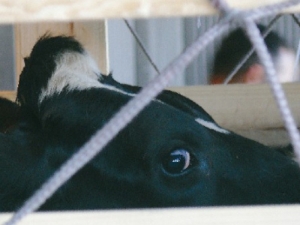DairyNZ Levy Vote Underway as Chair Highlights Seven-Fold Return
Voting has started for the renewal of DairyNZ's milksolids levy.
 MPI has already amended the Animal Welfare Act and now the National Animal Welfare Advisory Council is working through regulations that come out of that and details on minimum standards.
MPI has already amended the Animal Welfare Act and now the National Animal Welfare Advisory Council is working through regulations that come out of that and details on minimum standards.
Deciding which proposed animal welfare standards will become regulation and which will become 'guidance' is a priority concern for DairyNZ.
This is the message from Carol Barnao, general manager policy and advocacy.
MPI has already amended the Animal Welfare Act and now the National Animal Welfare Advisory Council is working through regulations that come out of that and details on minimum standards.
"The question is what needs to be in regulation and what can be in guidance," says Barnao.
"So the issue for us and dairy farmers is... what is the difference between the old system and what they are proposing right now?"
The "devil is in the detail", she says. They are looking at how practical the regulations are and testing proposals with farmers, and will go back to MPI with their views by the May 19 deadline.
Barnao believes the changes to the act, and now the regulations that come out of that, is a modernising strategy by the Government.
NZPork chairman Ian Carter says in general they support the proposals by MPI and respect requirements for farrowing and crate sizes. Farmers need to adapt to the size of their pigs. "That is well documented in the industry and we respect that."
NZPork is concerned about a proposal to bring back 'manipulative materials' such as straw. They have been breeding their animals for 50 generations (one year = one generation) without manipulative materials. Pigs are provided with a warm environment and specialist facilities for the piglets. They meet all the nesting behaviour needs, providing for them more hygienically than does straw.
Just as people want modern technology in their own lives, farming cannot go back to what it was hundreds of years ago, Carter says. New technologies have been developed as they gained more understanding of their animals, environmental and OSH requirements and the consumer.
The pork industry has invested considerably and developed special techniques and facilities for the breeding sow and the survival of her piglets. Safety is paramount, similar to the reasons humans have developed maternity hospitals.
Horticulture New Zealand (HortNZ) has added its perspective to numerous primary sector voices urging the Government to strengthen its draft legislation to replace the Resource Management Act (RMA).
The Commerce Commission has finalised new information disclosure requirements for local councils and water organisations that deliver water supply and wastewater services.
Beef + Lamb NZ (B+LNZ) is calling for significant changes to the Government’s reforms to the Resource Management Act (RMA).
NZPork says the Government needs to strengthen its proposed planning laws to ensure New Zealand's pig farmers can continue to produce pork.
Good news for kiwifruit growers - a record crop with forecast per hectare returns at record levels for all fruit categories for the 2025-26 season.
As guests gathered on what is known as the Speaker's Lawn - a beautifully manicured patch of grass behind the main buildings of Parliament - to mingle and enjoy a lamb chop to celebrate National Lamb Day, the mood was very much upbeat.

OPINION: The proverbial has really hit the fan in Wellington and exposed a glaring example of a double standard in…
OPINION: Dark suited spin doctors exist to, well, spin, and the nice cuddly progressive types at Greenpeace Aotearoa practice this…